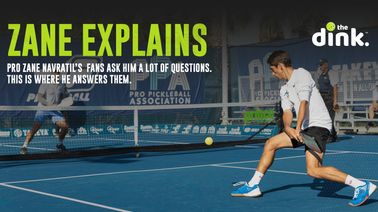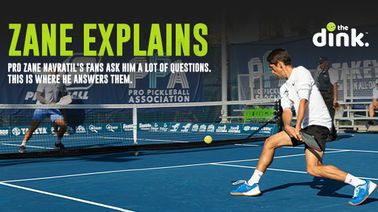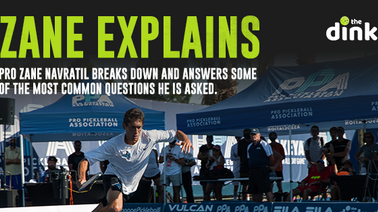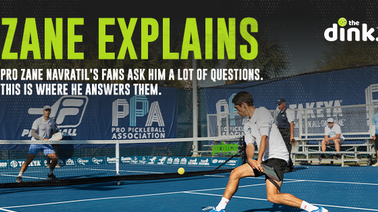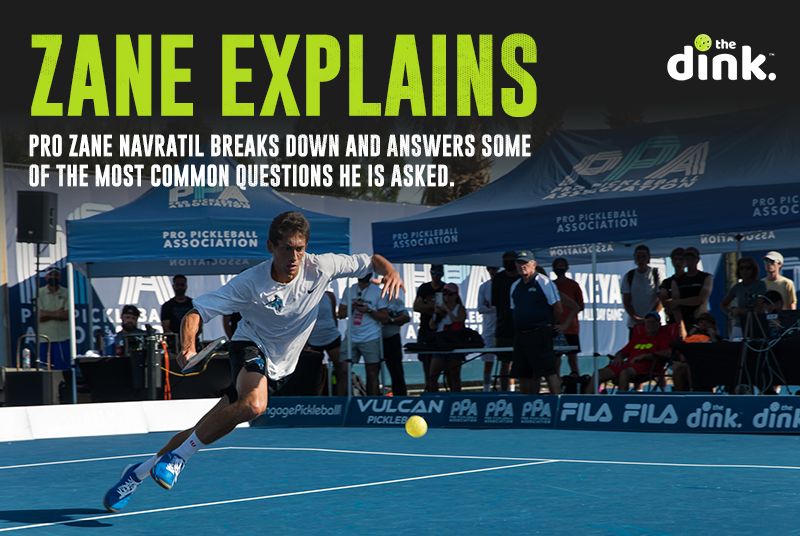
After extensive googling of "affect versus effect", I'm 75 percent sure I have the correct word. There are the obvious elements that affect our play, but then there are less known factors. I'm going to break down several elements and what you can do to use them to your advantage.
Wind - This is the obvious one. Wind moves a pickleball tremendously, making it more difficult to execute your shots. Wind makes everybody worse at pickleball, so how can you use it to your advantage? Well, "you don't have to run faster than the bear to get away. You just have to run faster than the guy next to you". If you can manage the wind better than your opponents, the wind provides an advantage for you!
RAPIDLY IMPROVE YOUR GAME OR YOUR MONEY BACK WITH PICKLEBALL MASTER COURSE! GET 10% WITH CODE THE DINK

Identify which way the wind is going, adjust your shots accordingly, and give yourself plenty of margin for error. Don't try to paint lines, but rather aim for big targets.
Elevation
This one might not be obvious to everybody, but elevation impacts the flight of a pickleball through the air. In higher elevation, the air is "thinner", meaning that the ball will travel quicker and fly farther.
A great way to show the elevation factor is by comparing two tournaments: The US Open and Tournament of Champions. The US Open, played in Naples, FL, has an elevation of 3 feet above sea level compared to TOC, played in Brigham City, UT, with an elevation of ~ 4,400 feet. The higher elevation is more conducive to a "run and gun" playstyle, whereas you typically see far longer and "grindy-er" points at the US Open. But the TOC and US Open are also very different in their temperature and humidity as well! In higher elevations, you can be a bit quicker to "pull the trigger" with an attack, and in lower elevations, you might want to be a bit more patient.
Temperature
In warmer weather, the plastic of the pickleball softens. As a result, the ball will compress more when it hits a surface such as your paddle, the court, or somebody's thigh. Yeah, the best welts come in warm weather! The pace of play is much slower in warmer weather. The ball isn't bouncing very high, which makes attacking more difficult, and the ball will also not rebound as quickly off of the paddle, meaning it's more difficult to generate pace.
Cold temperatures, which I'm used to up in Wisconsin, have the opposite effect. So, typically what you will see is a far more offensive play style in colder temperatures, and more patient in warmer.

Humidity
Humidity is another factor that impacts our play. When it's more humid, the ball will travel slower through the air. Humidity has the biggest impact on spins, however. When it's extremely humid (I'm talking Florida mornings), moisture can stick to the ball and paddle, which may cause the ball to slide off of the paddle if you're not careful. If you're trying to generate a bunch of slice or topspin on a humid day, good luck. Protect yourself by playing with a bit less spin in humid climates.
There ya have it. Anything I missed?!
Zane

Facebook | Instagram | TikTok | YouTube
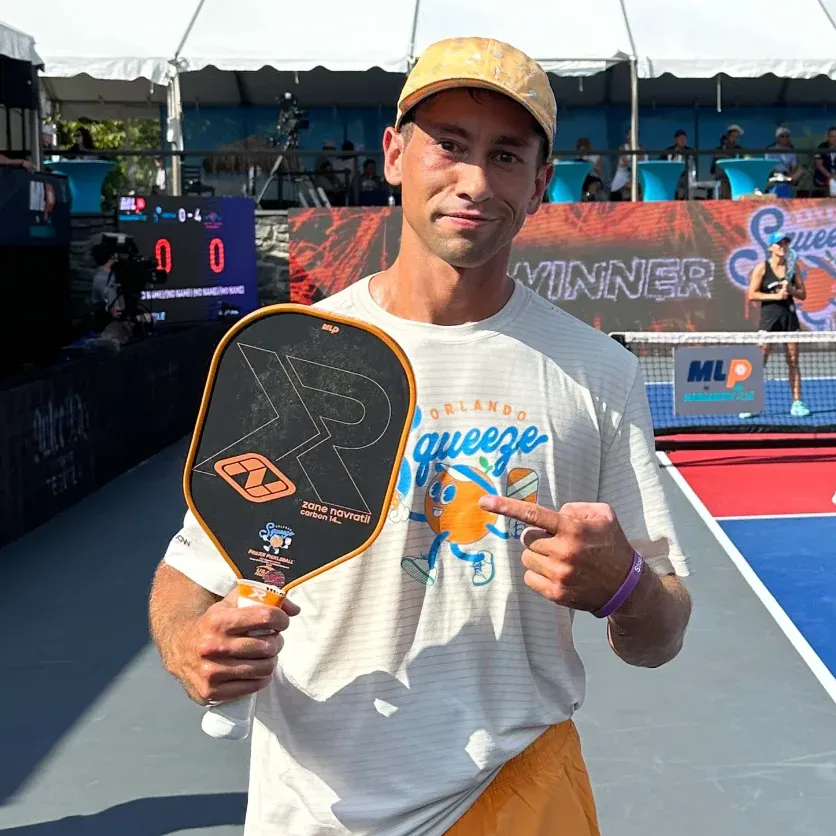
Zane Navratil
Zane is a professional pickleball player both on the PPA Tour and Major League Pickleball. He is also the co-host of the No. 1 pickleball podcast PicklePod.
Love Pickleball? Join 100k+ readers for free weekly tips, news & gear deals.
Subscribe to The DinkGet 15% off pickleball gear at Midwest Raquet Sports


